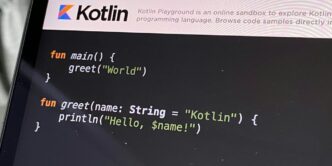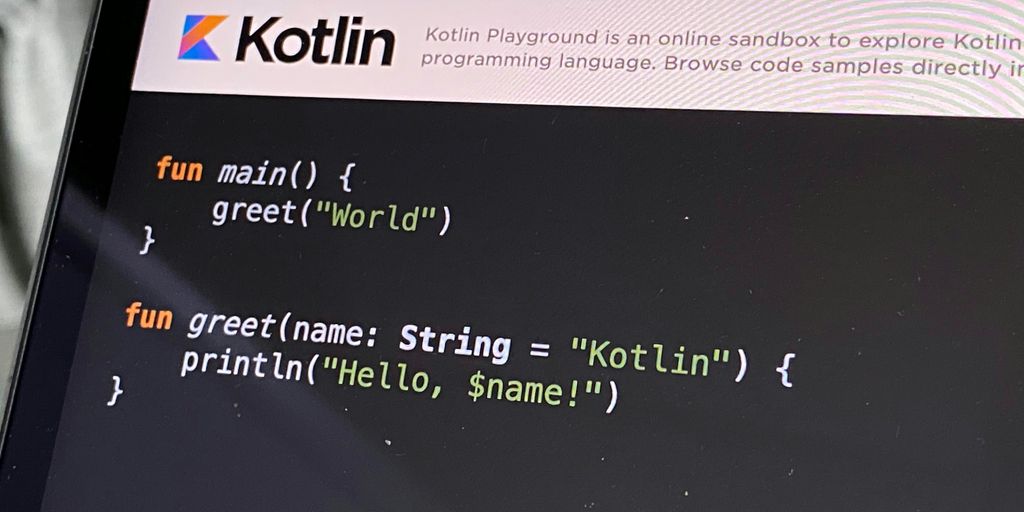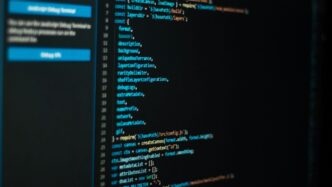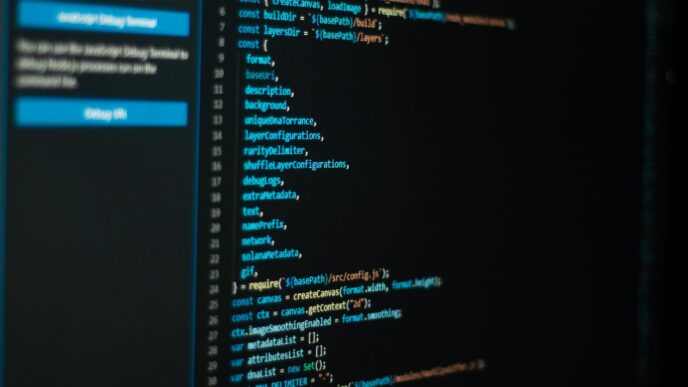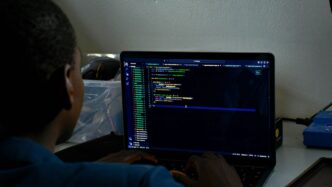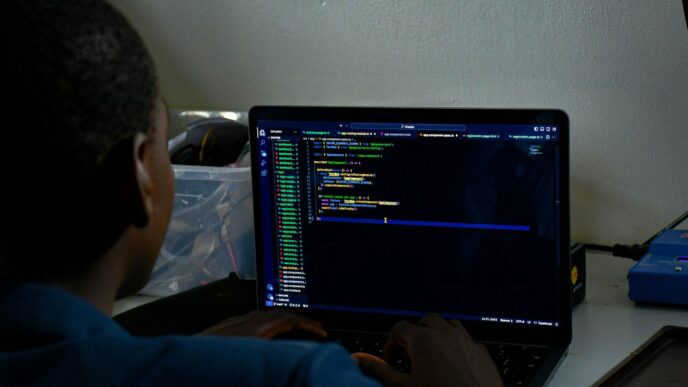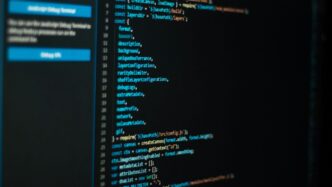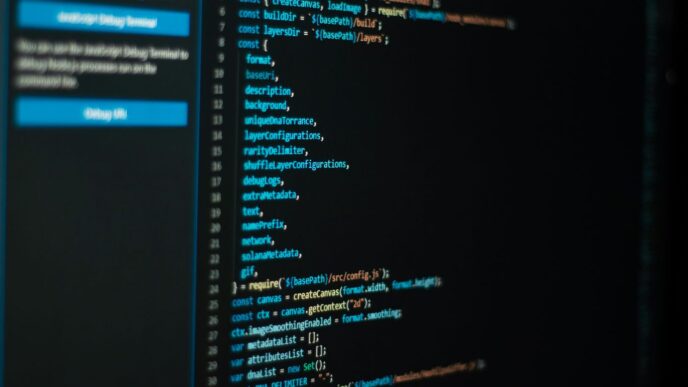Looking to boost your Python skills in 2025? You’re in luck! Udemy has a ton of great courses for learning Python, whether you’re just starting out or want to get more advanced. I’ve been digging through them, and let me tell you, there are some real gems out there. It can be a bit overwhelming with so many options, so I’ve put together a list of some of the top Udemy Python courses that people are talking about. These are the ones that seem to really help you learn by doing, which is my favorite way to pick things up. Forget just watching videos; these courses get you building stuff.
Key Takeaways
- The “100 Days Of Code” course is a solid choice for beginners, focusing on building many small projects daily.
- For those with no prior coding experience, the “Complete Python Bootcamp” is highly recommended for its beginner-friendly approach.
- If you want to learn Python in depth and build real-world applications, the “Complete Python Developer” course is a great option.
- Project-based learning is emphasized, with courses like “The Python Mega Course” helping you build multiple applications.
- Udemy offers a wide range of Python courses, covering everything from basic syntax to advanced topics like web development and data science.
1. 100 Days Of Code – The Complete Python Pro Bootcamp for 2025
If you’re looking to really commit to learning Python, the "100 Days Of Code – The Complete Python Pro Bootcamp for 2025" is a solid choice. It’s structured around a daily coding challenge, which helps build a consistent habit. You’ll be working on actual projects from day one, moving from basic syntax all the way to more complex topics like web development and automation.
What sets this course apart is its project-based approach. Instead of just watching lectures, you’re actively building things. For instance, you might be building a web scraper one day and a portfolio website the next. This hands-on method really helps solidify your understanding.
Here’s a quick look at what you can expect:
- Daily coding challenges: Keeps you engaged and practicing.
- Real-world projects: Builds practical skills you can use.
- Modern Python practices: Covers current language features and techniques.
- Clear explanations: Breaks down complex ideas into manageable steps.
This course is great for beginners who want a structured path, or even experienced developers looking to switch languages. Just be prepared for the commitment; 100 days is a significant time investment, but the payoff in skills is substantial. It’s a great way to get started with Python.
2. Complete Python Bootcamp: Go From Zero to Hero in Python 3
If you’re starting from scratch with programming, this course is a solid choice. It’s designed to take someone with absolutely no prior coding knowledge and build them up to being proficient in Python. Think of it as a complete beginner’s guide, but with a focus on actually building things. You’ll start with the very basics, like what a variable is and how to write simple commands. From there, it moves into more complex topics, covering things like object-oriented programming and how to work with different types of files, like PDFs or Excel sheets. The instructor, Jose Portilla, is known for breaking down tough concepts into understandable pieces.
Here’s a quick look at what you can expect:
- Core Python concepts: From basic syntax to advanced features.
- Real-world applications: Learn to build web apps and games.
- Practical skills: Work with files, send emails, and scrape data.
- Project-based learning: You’ll create several applications throughout the course.
This course is a great way to go from zero to hero in Python. It’s packed with 22 hours of video material, plus coding exercises and articles to help you practice. It’s also got a 30-day money-back guarantee, so you can try it out without much risk.
3. The Complete Python Developer in 2025: Zero to Mastery
If you’re aiming to become a job-ready Python developer, "The Complete Python Developer in 2025: Zero to Mastery" is a solid choice. This course, created by Andrei Neagoie, really focuses on giving you the full picture, not just Python basics. It covers Python itself, but also dives into web development and how to get your projects out there, which is super important for landing a job.
What sets this course apart is its practical approach. You’ll build over 12 real-world projects, like a portfolio website and a web scraper. It also touches on machine learning with Python, which is a big plus. Plus, Andrei shares insights from hiring managers, which is pretty unique and helpful for understanding what employers are actually looking for. You’ll also get hands-on with tools like Git and Docker, and learn about testing and virtual environments.
It’s a good option if you prefer learning by doing and want to grasp the broader Python ecosystem. Some people find it moves a bit fast compared to other courses, but the project-based learning really helps solidify concepts. If you want to get a good feel for the whole development process, this is definitely one to consider. You can check out the Zero to Master Academy for more details.
4. The Python Mega Course: Build 10 Real World Applications
Alright, let’s talk about "The Python Mega Course: Build 10 Real World Applications." This course is really something if you’re the type of person who learns best by actually doing stuff. Instead of just reading about Python or watching endless lectures, you’re going to be building things from pretty much the get-go. The instructor, Ardit Sulce, has put together a program where you’ll construct ten different applications. Think of it as a hands-on workshop where you get to see what Python can really do across various fields.
What kind of projects are we talking about? Well, you’ll get to build a web scraper, which is super handy for pulling data off websites. You’ll also learn how to create a portfolio website and even get it up on a live server, so you’re touching on web development too. Some of the cooler examples mentioned include an app that translates words and a webcam app that can spot moving objects. It’s all about getting your hands dirty and making tangible things.
Here’s a quick look at what you can expect:
- Web Scraping: Learn to collect data from the internet.
- Web Development: Build and deploy your own portfolio website.
- Application Building: Create practical tools like translators or object detectors.
- Diverse Applications: Projects cover different areas to show Python’s versatility.
This course seems like a solid choice if you learn by building and want to see practical results from your coding efforts.
5. Python Pro Bootcamp for 2025
Alright, let’s talk about the ‘Python Pro Bootcamp for 2025’. This one really packs a punch if you’re looking to get hands-on with Python. It’s not just about theory; you’re actually building things.
The course is structured around building 10 real-world applications, which is a fantastic way to see Python in action. You’ll go from the basics all the way up to more complex stuff.
Here’s a quick look at what you can expect:
- Core Python Concepts: Covers variables, data types, loops, and functions.
- Object-Oriented Programming: Gets into classes and objects, which is pretty important.
- Web Development Basics: You’ll touch on frameworks like Flask.
- Data Handling: Includes libraries like Pandas and NumPy for working with data.
- Project Building: The main focus is on completing those 10 applications, giving you a solid portfolio piece.
It’s a good choice if you learn best by doing and want to see practical results quickly. The projects are designed to mimic real-world scenarios, so you’re learning skills that are actually used out there.
6. The Modern Python 3 Bootcamp
Colt Steele’s "The Modern Python 3 Bootcamp" is a solid choice if you’re looking to get a good grip on Python 3. It’s not one of those super long courses that feels like it’s dragging; it clocks in at around 29 hours, which is pretty manageable. Steele has a knack for making things clear, and the course is packed with hands-on projects, which is how I learn best, honestly. You’ll cover the basics, sure, but it also gets into things like object-oriented programming and even a bit of web development. It’s got a high rating from a lot of students, so you know people generally find it helpful. If you’re trying to build a strong foundation in Python, this is definitely one to check out. It’s a good way to get started with Python programming.
7. Python 3: Deep Dive (Part 1 – Functional)

This course really gets into the nitty-gritty of Python 3, focusing specifically on functional programming. If you’re tired of the usual beginner stuff and want to write code that’s more efficient and easier to read, this is a good pick. It’s a pretty long course, clocking in at 46 hours, which means they cover a lot of ground. With a 4.8 rating from nearly 40,000 students, it seems like people find it pretty useful.
What you’ll get out of this:
- A better way to write code: You’ll learn how to make your Python programs more compact and expressive.
- Advanced concepts: Expect to explore things like closures, decorators, and generators. These are the kinds of tools that can really change how you approach problems.
- Practical application: The course aims to show you how to use these functional programming ideas in real projects, not just talk about them.
It’s a solid choice if you’re looking to move beyond the basics and start writing Python like a seasoned pro.
8. Learn to Code with Python
If you’re just starting out with coding and want a solid introduction to Python, this course, "Learn to Code with Python," is a good pick. It’s pretty long, clocking in at around 58 hours of material, which means they really go over things. It’s got a 4.6 rating from over 67,000 students, so a lot of people have found it helpful.
What you get with this course:
- Covers the basics of Python, like syntax and how to put code together.
- Includes projects and exercises to help you practice what you learn.
- Goes through core programming ideas such as variables, loops, and functions.
It seems like a good way to get a firm grasp on Python without getting too complicated right away. Plus, with that much content, you’re likely to get your money’s worth.
9. 30 Days of Python | Unlock Your Python Potential
Alright, let’s talk about the "30 Days of Python | Unlock Your Python Potential" course. If you’re looking to get a handle on Python without getting bogged down for months, this might be your ticket. The idea is pretty straightforward: learn Python in just 30 days. It’s aimed at beginners, but they say it’s useful for pros too, which is always a good sign. You’ll be building actual projects as you go, which is way better than just reading about stuff.
This course is taught by Justin Mitchel, who seems pretty enthusiastic about Python. He’s got a knack for explaining how Python can work with all sorts of other technologies.
Here’s a quick look at what you can expect:
- Web Scraping: Learn how to pull information from websites, even ones that use JavaScript, and then automate tasks with Python.
- APIs and Automation: You’ll get to play with the Twitter API to send tweets and use other APIs to share data. Plus, you’ll learn how to handle emails.
- Data Handling: Get comfortable reading and writing CSV files, working with Excel data, and using things like the Yelp API to gather business information.
It’s got a solid 4.5/5 rating from over 33,000 students, and it takes about 4 hours to get through. You get lifetime access and a certificate when you’re done. Sounds like a pretty good deal if you want to get up to speed quickly.
10. Python for Everybody Specialization
If you’re looking for a solid, university-backed introduction to Python, the "Python for Everybody" specialization from the University of Michigan on Coursera is a really good choice. It’s taught by Charles Russell Severance, often called Dr. Chuck, and he’s known for making complex programming ideas easy to grasp. Seriously, his explanations can make things that seem tricky feel pretty straightforward.
This specialization is broken down into five parts, and it really starts from the ground up. You don’t need any prior coding experience, and they keep the math stuff to a minimum. It covers the basics of programming, then moves into how Python handles data structures, how to pull data from the internet (like scraping websites and using APIs), and even how to work with databases using SQL.
What’s cool is that you’ll actually work with real data, not just made-up examples. The part where you learn to interact with websites and APIs is a real highlight, making it feel like you’re building something that actually does stuff in the real world.
It’s a great option if you prefer a more academic approach without the stuffiness, and if you want to build a strong foundation for data analysis or just generally understanding how to think like a programmer. It might not focus as much on the latest web development trends compared to some other courses, but for learning Python itself, it’s top-notch.
Wrapping Up Your Python Journey
So, that’s a look at some of the top Python courses you can find on Udemy right now. Picking the right one can feel like a lot, especially with so many options out there. Remember, the best way to really learn is by doing, so look for those courses that have you building projects. Python is a super useful skill, whether you’re into making websites, automating tasks, or digging into data. Don’t get too caught up in finding the ‘perfect’ course; often, the best one is simply the one where you click with the instructor’s style. Give a few previews a watch, and jump into the one that feels right for you. Happy coding!
Frequently Asked Questions
Why is learning Python a good idea in 2025?
Python is a super useful computer language that lots of companies use. You can use it to build websites, make computer programs do tasks automatically, look at information, and even create smart computer programs that learn. It’s like a magic tool for many jobs in technology.
What kind of Python courses can I find on Udemy?
Udemy has tons of Python classes. Some are great for people just starting out, while others are for those who already know a bit and want to learn more. Many classes focus on building actual projects, which is a fantastic way to learn by doing.
What’s the best way to learn Python from these courses?
The best way to learn is by actually building things! Project-based courses are awesome because you get to create real stuff, like websites or apps. This helps your brain work harder and makes learning stick better than just watching videos.
Are the instructors easy to understand?
Many of these courses are taught by instructors who are really good at explaining tricky ideas in simple ways. They often have lots of examples and guide you step-by-step. It’s like having a friendly teacher who makes learning fun and easy.
Do these courses teach useful tools for web building or data work?
Yes, absolutely! Some courses will teach you how to use special tools like Django and Flask for making websites, or Pandas and NumPy for working with data. This means you can build almost anything you can imagine with Python.
How do I pick the right Python course for me?
It’s a good idea to watch the free preview videos for a few courses. If you find yourself enjoying the way the teacher explains things and the stuff they’re teaching, that’s a great sign! Stick with the course that feels right for you and the teacher you like the most.

